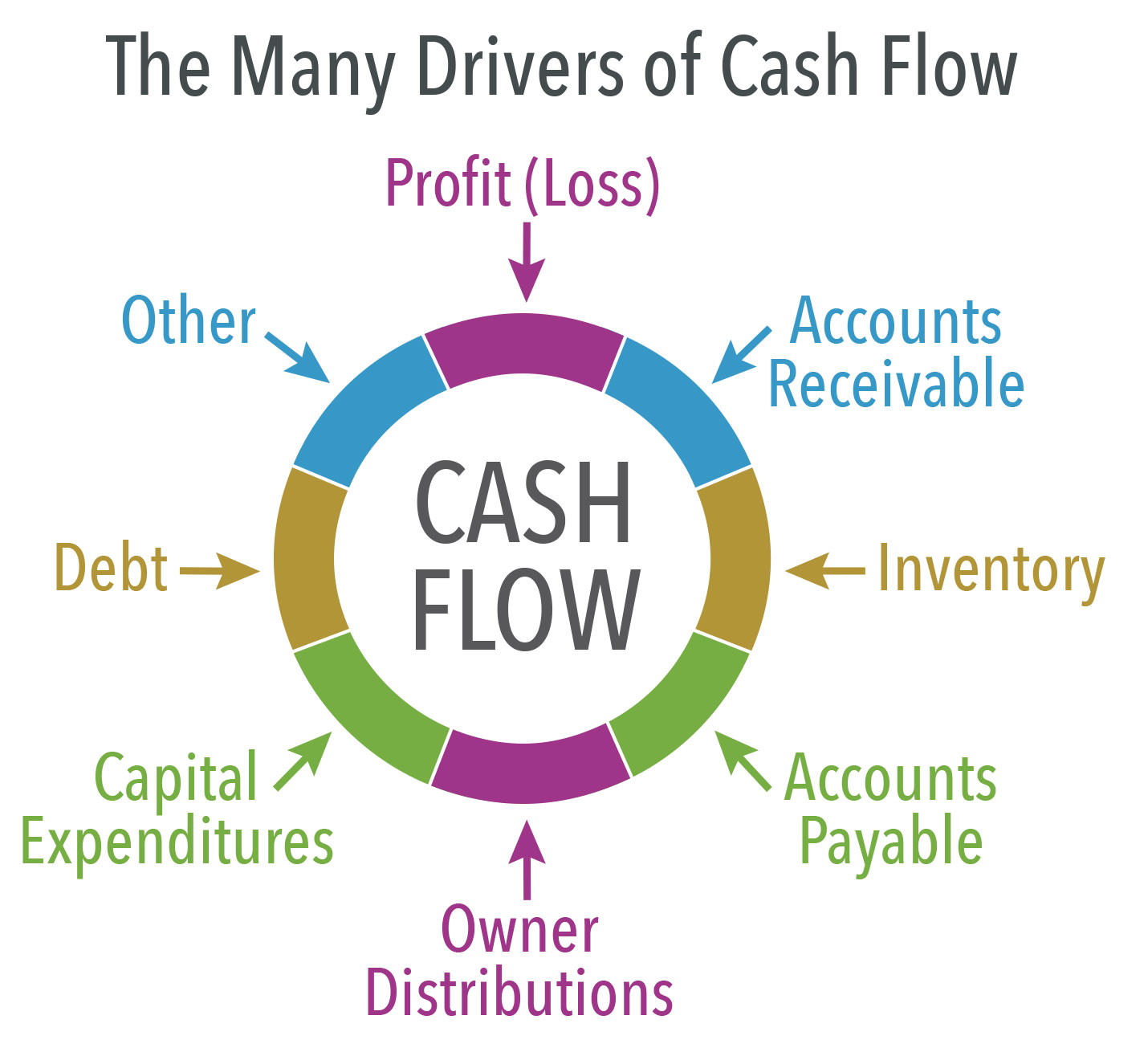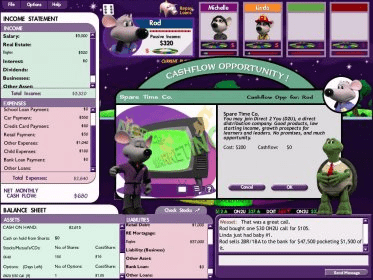

One the second property, we opted to not sell and instead sought out a cash flow tenant. On the first one, we sold the asset and invested it into another property that delivered a better cash flow. There have been two incidents recently where we faced this question. If we sell the asset and pay off credit cards, our car loan, or our home loan, then those funds have left the asset column. That means, if weyou have a property (or other investment) that is producing cash flow, we can sell it, but the profit must go to purchase or create another asset. That rule is, any dollar that comes into the asset column, stays in the asset column. There will be times when you are faced with this choice. Often throughout the game you will be faced with the decision of, “Do I keep my asset which is giving me cash flow, or sell it and take the cash?”ĬASHFLOW is based on real life. That is why is so important to play with fake money before playing with your own real money. They don’t have the money or experience but they want to “go for it all”. While playing the game, there will always be players who go for the BIG deal before they have ever done a SMALL deal.

The first step is to get some education and then start small. We often say, “It’s not the investment that’s risky, it’s the investor.” Someone who puts their money into an investment (real estate, stocks, business, commodities) with not education about the investment is a very risky investor. AS INVESTING EDUCATION INCREASES, YOUR RISK DECREASES.

Find a CASHFLOW Club now!Īs you’re playing CASHFLOW, watch the behaviors of the other players, as well as your own, to see if how you play the board game… is how you play life. Rest assured that behavior, and it may be your own behavior, that shows up in the game will also show up in life. Here are just a few, of many, lessons to watch for as your play CASHFLOW.Īny game you play – any sports, board games, any competition – will bring out a person’s true behavior. There are always new distinctions to get from the game, because where you are today is not where you will be a month from now. The importance of being part of a CASHFLOW Club is that you get to play the game often. We know of one club that meets once a month at their favorite pizza parlor. Some groups meet at coffee shops, some at people’s offices. These clubs are groups of people that spontaneously get together on a regular basis and play the game. We began doing our own research and we discovered that there were approximately 3,500 CASHFLOW Clubs worldwide. One day the journalist writing the story called us and asked, “Did you know that you have a CASHFLOW Club here in New York with about 1,000 members?” We said, “No, we didn’t know that.” Then he went on to say, “I’ve been doing some research and do you know there are CASHFLOW Clubs all over the world?” We were stunned and speechless. And in October 1996, we launched the CASHFLOW board game in Singapore to a group of about 500 players.Ī few years after we launched the CASHFLOW game the New York Times newspaper called us and said they wanted to do a story on the game. Having never invented a board game, every day was an experiment in what works and what doesn’t works. And it opens up discussion about money and investing that most people never talk about.

You make investing mistakes… but with play money, not real money. It’s actually people teaching people.īy playing the game you see different strategies of different players. More importantly, a board game allows the players to become the teachers. "Rich Dad Poor Dad" - The #1 Personal Finance Book of All-Time We asked ourselves, “What if we could combine investing, one of the scarier subjects when it comes to money, and accounting, probably the most boring subjects, and create a fun and entertaining board game that teaches people exactly what we did?” That way the board game travels, and we don’t have to, because one of our mantras at Rich Dad is “ the more people we serve, the more effective we become.” People teaching people is much more effective and reaches so many more people, than us.


 0 kommentar(er)
0 kommentar(er)
